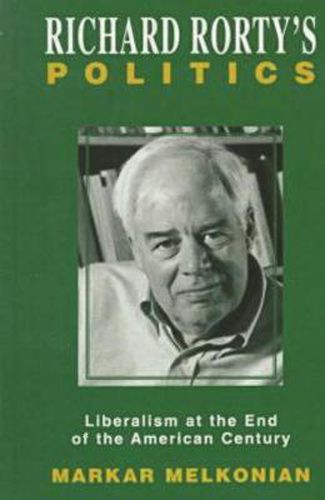Richard Rorty's Politics: Liberalism at the End of the American Century
Markar Melkonian

Richard Rorty’s Politics: Liberalism at the End of the American Century
Markar Melkonian
Much of what Richard Rorty has to say about the triumph of American liberalism is largely accepted and unquestioned by a wide variety of scholars. Yet there are inconsistencies in Rorty’s work, and his defense of liberalism does not depend on familiar Enlightenment assumptions about reason, human nature, historical progress, and the like. So argues Markar Melkonian, who critically examines Rorty’s brand of liberalism stripped of its Enlighenment rationales.
Melkonian initially compares Rorty’s social and political views with his alleged progenitor, John Dewey, showing that there are significant differences between the two, notably their respective conceptions of freedom and democracy and their accounts of how to harmonize personal freedom with public responsibility. Then Melkonian makes the case that the existing liberal democracies Rorty wants to defend bear little resemblance to Rorty’s own liberal utopia, in which the quest for autonomy is impeded as little as possible by social institutions.
Melkonian asserts that at the end of the American century, Rorty’s private role as ironist and his public role as apologist for existing liberal democracies are not so much incommensurable in principle as they are incompatible in fact.
This item is not currently in-stock. It can be ordered online and is expected to ship in approx 4 weeks
Our stock data is updated periodically, and availability may change throughout the day for in-demand items. Please call the relevant shop for the most current stock information. Prices are subject to change without notice.
Sign in or become a Readings Member to add this title to a wishlist.


